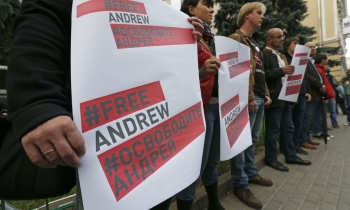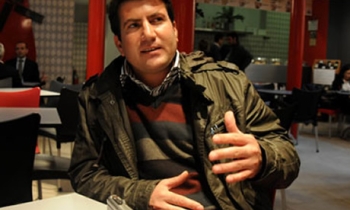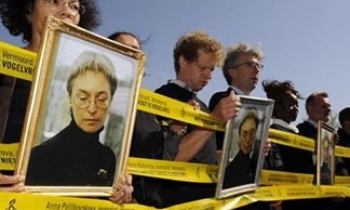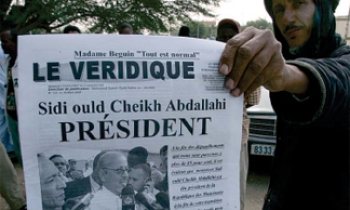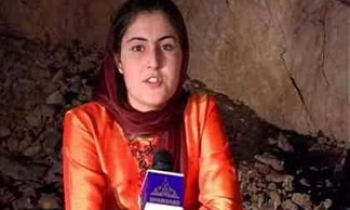TEHRAN, Nov. 27 — The Iranian Supreme Court has ordered a new investigation into the death of an Iranian-Canadian photojournalist who was killed in Tehran in 2003 while in custody, the judiciary spokesman said Tuesday.
Zahra Kazemi, a photojournalist who was killed in 2003 after being arrested in Tehran.
The spokesman, Alireza Jamshidi, told journalists on Tuesday that the court had objected to the acquittal in 2004 of an intelligence agent accused of inflicting the fatal blow to the photojournalist, Zahra Kazemi, who was 54, the Iranian news agency ISNA reported.
“The Supreme Court found flaws,” he said, adding that it had questioned the investigation by a different court. “It has sent the case to a new court for investigation,” he was quoted as saying.
The decision was made after a lawyer for Ms. Kazemi’s family, Shirin Ebadi, a Nobel Peace laureate, appealed the ruling and threatened to take the case to international organizations.
The case has caused tension between Iran and Canada. The Canadian government recalled its ambassador in 2003 in protest, and it has repeatedly championed United Nations resolutions condemning Iran’s human rights record. Relations between the countries have yet to return to normal.
Ms. Kazemi was arrested while she was photographing outside the notorious Evin prison in Tehran. The authorities first said that she had died of a stroke and then claimed that she had fallen and hit her head, but a committee appointed by Mohammad Khatami, the reformist who was president at the time, announced that she had died of a fatal blow to her head that had caused her brain to hemorrhage.
The judiciary charged an intelligence agent, Muhammad Reza Aghdam Ahmadi, with semi-intentional murder, and he was eventually acquitted. But lawyers representing Ms. Kazemi’s family have said that Mr. Ahmadi was just a scapegoat, and they have accused a prison official, Muhammad Bakhshi, of inflicting the blow.
John A. Terry, a lawyer in Toronto who represents the Kazemi family, said they doubted that the court’s decision would lead to any meaningful action.
“We have very low expectations,” he said. “We have no indications that this is part of some reform push or transparency push that wants to get to the heart of the matter.”
Mr. Terry said he had asked the Canadian government to try to take part in the new investigation.
The family has filed a civil lawsuit in Montreal against the Iranian government and several of its officials. Hearings are expected to begin next fall.
In the Canadian Parliament, Helena Guergis, the secretary of state for foreign affairs, repeated the government’s call “for a new and credible investigation.”
“Iran has an obligation to the Kazemi family to ensure that the perpetrators of this terrible crime are brought to justice and the rights of the family are upheld,” Ms. Guergis said.
In a separate case, ISNA reported Tuesday that Hossein Moussavian, a former nuclear negotiator who was arrested in May, had been cleared of charges of spying and the possession of confidential documents. President Mahmoud Ahmadinejad said this month that Mr. Moussavian was a spy, and the minister of interior accused him of passing information to the British.
The spokesman for the judiciary, Mr. Jamshidi, told the news agency that although those charges had been dropped, Mr. Moussavian had been found guilty of “propagating against the regime.” He did not elaborate on the charge, but said the case would be completed within the next three to four days.
Ian Austen contributed reporting from Ottawa.


